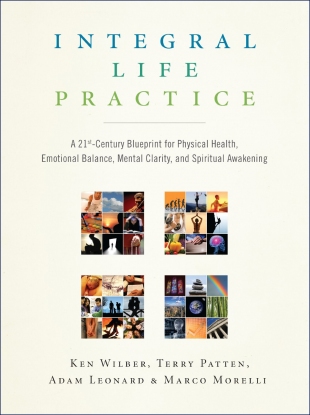Expect Both Good Days and Bad Days
"Brightness and darkness don't stop alternating just because you practice sincerely. In fact, practice itself stirs up both! Because practice creates life changes, it disturbs the status quo of your previous existence. Any system will try to restore its previous balance. Thus, practice inherently calls up resistance to practice. Bad days are built into the practice life, unavoidable. And so are good days.
"If you practice only on good days, your previous habit patterns will remain strong. Your bad days will keep coming as before. And when your good days come along, and you're ready to practice again, you'll be starting over again near square one.
"Alternatively, if you honor your intention to practice during your bad days, your unconscious patterns will weaken. On your good days, choosing to practice will feel most fulfilling and sometimes produce high state experiences or even glimpses of perspectives characterizing higher stages of awareness. However, on your most ordinary days, when nothing seems to be happening, consistent practice is an investment in future openings, a way to make yourself prone to 'lucky accidents.'
"Not only that — bad days give you a prime opportunity to see fast transformational results. Your life and realization reflect the whole mix of your awareness and behavior — in good moments, bad moments, and those in-between. If you do better when it's hardest, the averages will soar. Developing to a whole new level of consciousness may take time. But operating more consistently at your best requires only clarity, willingness, and consistency. That can happen very quickly — and without delay to will transform how others experience you and how you experience yourself. This is one of the key ways that people see big changes in the first weeks and months of taking up a life of practice.
"Missing a practice here and there need not be made into a big deal. Forgiveness is a given, and so is a fresh start. You can always choose to practice in the next moment, without regrets or self-recrimination.
"At the same time, it's not efficient to abandon your practice. It wastes precious time and alienates you from important resources. Plus, it reinforces your tendency to abandon practice, so it doesn't strengthen your resilience to deal well with future challenges.
"Every moment in the up-and-down phasing of your practice life offers you a valuable leverage point. A secret in the game of practice is that practice builds momentum and efficiency. Just playing the game — and staying in it consistently — magnifies the effects of each ounce of intention and effort you put into your practice.
• "Practicing on good days boosts your peak experiences.
• "Practicing on bad days transforms your lows and brings up your overall level of functioning.
• "Practicing patiently at the plateau (when not much seems to be happening) plants the seeds of your next breakthrough.
• "Abandoning practice wastes time and reinforces the wrong impulses.
• "Staying in the game is far easier and more efficient than going in and out."
